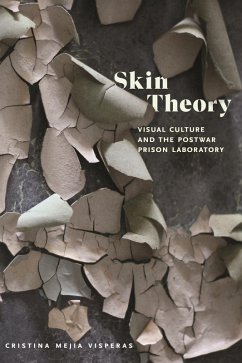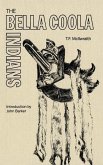Studies the intersections of incarceration, medical science, and race in postwar America
In February 1966, a local newspaper described the medical science program at Holmesburg Prison, Philadelphia, a "golden opportunity to conduct widespread medical tests under perfect control conditions." Helmed by Albert M. Kligman, a University of Pennsylvania professor, these tests enrolled hundreds of the prison's predominantly Black population in studies determining the efficacy and safety of a wide variety of substances, from common household products to chemical warfare agents. These experiments at Holmesburg were hardly unique; in the postwar United States, the use of incarcerated test subjects was standard practice among many research institutions and pharmaceutical companies. Skin Theory examines the prison as this space for scientific knowledge production, showing how the "perfect control conditions" of the prison dovetailed into the visual regimes of laboratory work. To that end, Skin Theory offers an important reframing of visual approaches to race in histories of science, medicine, and technology, shifting from issues of scientific racism to the scientific rationality of racism itself.
In this highly original work, Cristina Mejia Visperas approaches science as a fundamentally racial project by analyzing the privileged object and instrument of Kligman's experiments: the skin. She theorizes the skin as visual technology, as built environment, and as official discourse, developing a compelling framework for understanding the intersections of race, incarceration, and medical science in postwar America.
In February 1966, a local newspaper described the medical science program at Holmesburg Prison, Philadelphia, a "golden opportunity to conduct widespread medical tests under perfect control conditions." Helmed by Albert M. Kligman, a University of Pennsylvania professor, these tests enrolled hundreds of the prison's predominantly Black population in studies determining the efficacy and safety of a wide variety of substances, from common household products to chemical warfare agents. These experiments at Holmesburg were hardly unique; in the postwar United States, the use of incarcerated test subjects was standard practice among many research institutions and pharmaceutical companies. Skin Theory examines the prison as this space for scientific knowledge production, showing how the "perfect control conditions" of the prison dovetailed into the visual regimes of laboratory work. To that end, Skin Theory offers an important reframing of visual approaches to race in histories of science, medicine, and technology, shifting from issues of scientific racism to the scientific rationality of racism itself.
In this highly original work, Cristina Mejia Visperas approaches science as a fundamentally racial project by analyzing the privileged object and instrument of Kligman's experiments: the skin. She theorizes the skin as visual technology, as built environment, and as official discourse, developing a compelling framework for understanding the intersections of race, incarceration, and medical science in postwar America.
Dieser Download kann aus rechtlichen Gründen nur mit Rechnungsadresse in A, D ausgeliefert werden.









